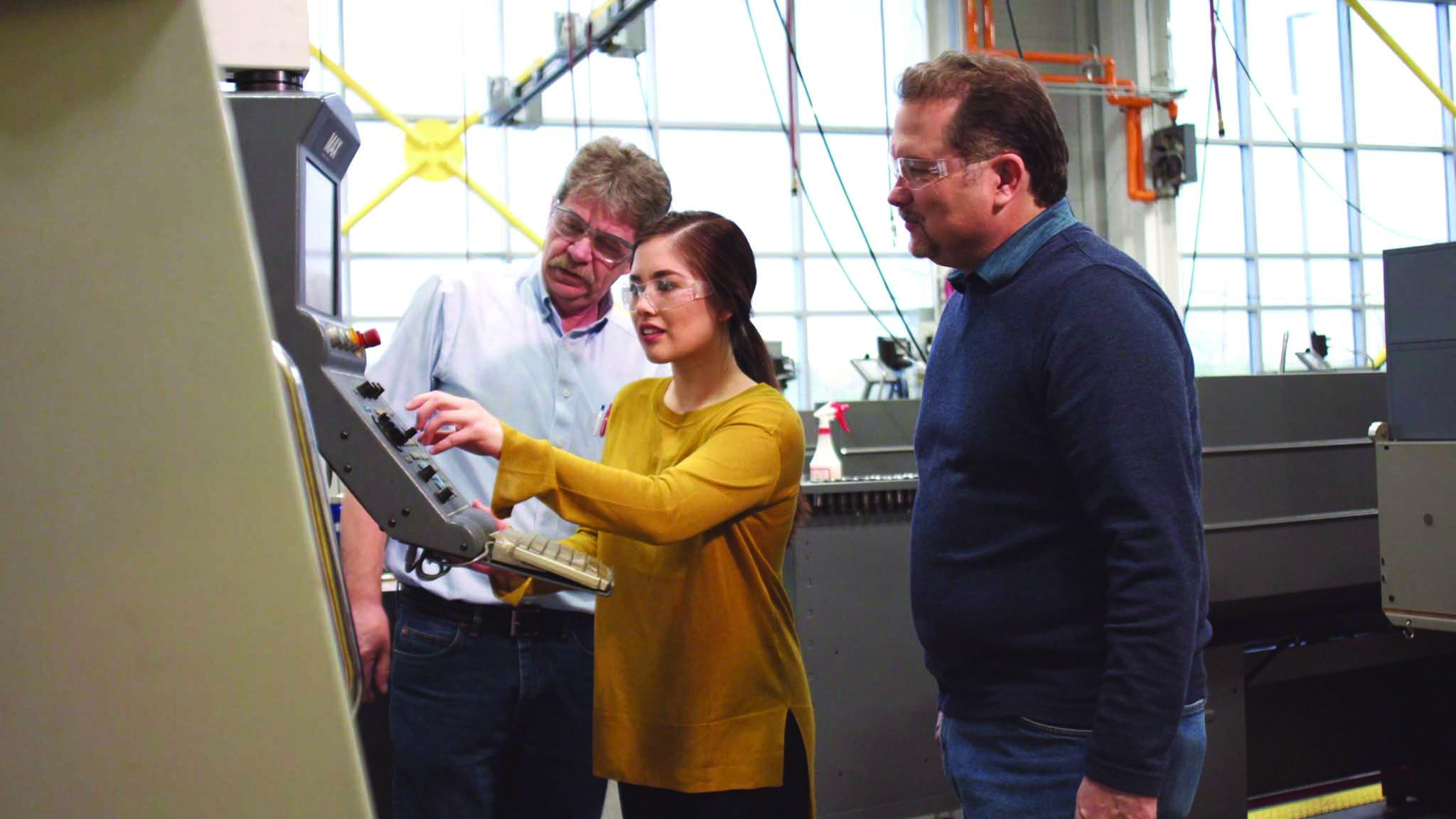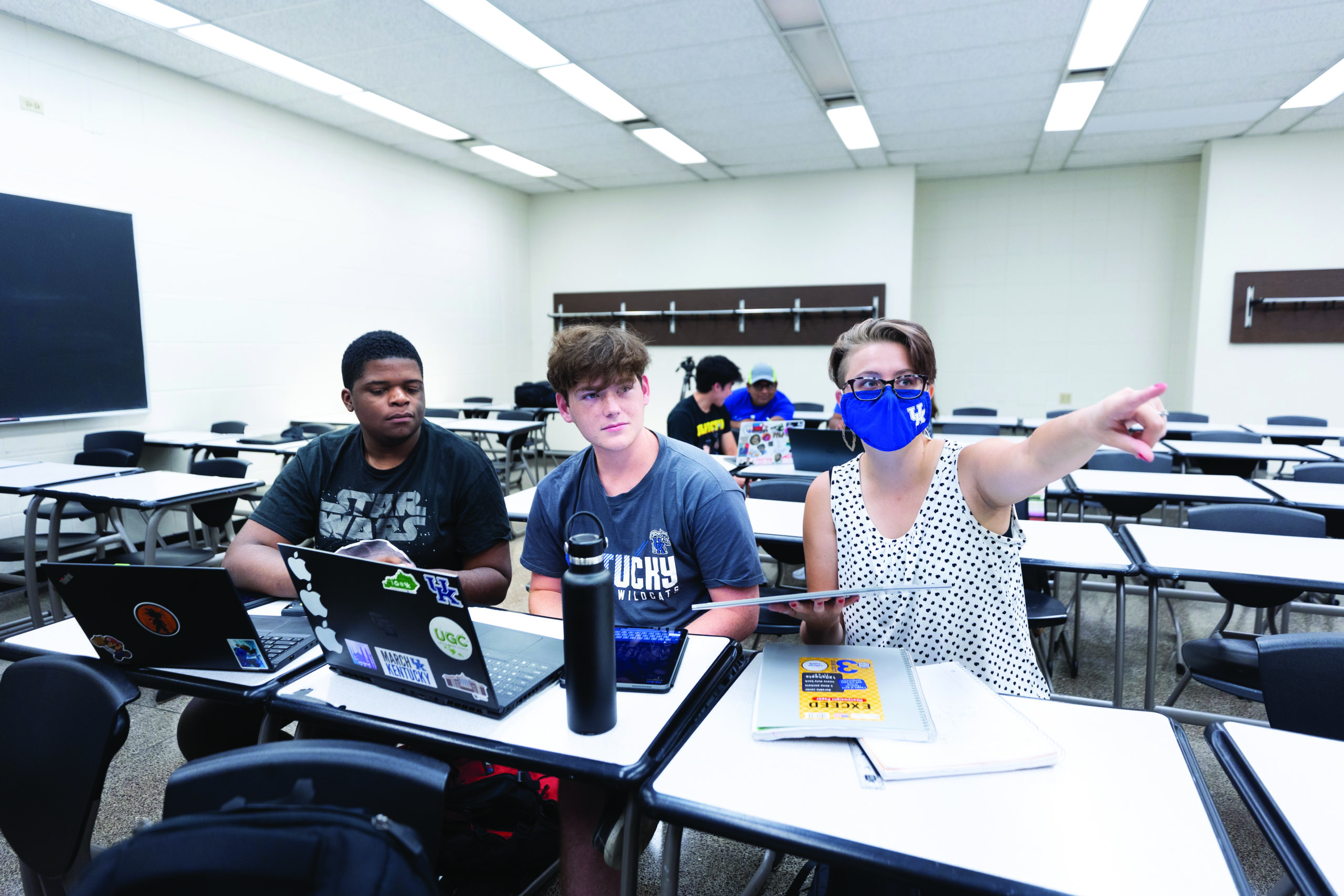
Kentucky’s postsecondary educators take seriously their responsibility to uplift the state by giving today’s students the most important skills in today’s competitive marketplace, including how to problem-solve. Educators have learned that giving students a wide range of supports to stay in school and succeed is crucial to the job they are doing. And they know that success is not necessarily a four-year or graduate degree. Colleges and universities are upgrading their financial aid tools and the digital technology elements today’s students expect and need to get the most out of their time on campus.
“The past 20 months have been an extremely challenging period for our world and economy. In our region, we continue to see a tremendous financial need from our students and families, inflation pressures in most areas of the economy along with workforce and supply chain issues. In response, we are providing a record number of scholarships and other financial aid to our students, which totaled over $115 million last year. We have a tremendous responsibility to our region and state to address access and affordability and have added new programs in response, such as the Murray State Promise, Racers Give, new and enhanced scholarships, to name a few. As we look forward, we continue to add and enhance high-quality, high-value academic programs to prepare our students for an ever-changing 21st-century economy while advancing the economic interests of our commonwealth.”
–Bob Jackson President, Murray State University
“Centre College is positioning itself to emerge stronger from COVID-19 through targeted spending that will ensure a positive return on investment for our students and families. In addition to completing several strategic capital projects to strengthen our academic and residential offerings, Centre recently broke ground on a new 135,000-s.f. facility devoted to wellness and athletic excellence, our largest project ever. We have also added majors in business and data science and are expanding our focus on career and professional readiness, experiential learning, and opportunities for civic and community engagement to better prepare our graduates for purposeful lives and meaningful work.”
–Milton Moreland President, Centre College
“Labor shortages will continue to affect economic growth. We have seen businesses struggling to find employees for some time, and as college-going rates have continued to fall, it has exacerbated the problem. We are working diligently to carry the message that more education after high school is needed, but that doesn’t always mean a bachelor’s degree. Sometimes, it’s a short-term program that can be completed in one semester or less. Convincing people to attend college for additional training will help our labor shortage, increase our workforce participation rate and grow the economy.”
–Paul Czarapata President, Kentucky Community & Technical College System
“Kentucky is realizing tremendous economic opportunities as evidenced by recent announcements from both Ford and Toyota and continued challenges exemplified in the number of open jobs and lower labor-participation rates than the national average. As the university of, for and with Kentucky, we have a special responsibility in helping the commonwealth address and grapple with both the opportunities and the challenges. To that end, we are focused on discovering new approaches to meeting our historic mission: to advance Kentucky. In our recently adopted strategic plan, we have charted a roadmap to meet this promise. We will put student success first in everything that we do, ensuring the skilled workforce our state needs. With a nearly $470 million research enterprise, we must seek to inspire ingenuity across our campus, focusing on the issues and challenges that most impact our state. We believe that taking care of our people—creating a healthier UK community and state—is critical to Kentucky’s future. We will always prioritize trust, transparency and accountability with our community and those we serve. And, we believe we should lead the way in demonstrating that a more diverse and inclusive Kentucky will create a stronger Kentucky.”
–Eli Capilouto President, University of Kentucky
“In spite of the robust economic recovery, many colleges and universities are experiencing challenges related to enrollment and revenue while expenses are escalating across the board. Yet the industry remains resilient. At Transy, we are more focused than ever on three key questions: (1) How do we deliver a highly personalized, top-quality education that is also affordable, particularly for a growing population of families with significant financial need? (2) How can we further enhance our use of technology to enrich the student experience? (3) What do our data tell us about our student population that is more diverse than ever, and how can we improve on what we deliver?”
–Rhyan Conyers Vice President for Institutional Effectiveness, Transylvania University
“EKU attracts students seeking transformational experiences in premier degree programs for traditional and nontraditional students. EKU ranks No. 1 in Kentucky for placing baccalaureate graduates in the Kentucky workforce because we are highly in tune to placement opportunities for our students. Because of the shortage in health care workers during the pandemic and the high rate of substance use in Kentucky, EKU is seeing demand for students in the areas of nursing, psychiatry and social work. EKU investments encourage interdisciplinary programming to address mental health and substance use across disciplines. Aerospace and aviation is the No. 1 export sector for Kentucky. As the only four-year degree aviation program in the commonwealth, EKU has invested in a new fleet of aircraft, partnered with local governments to increase the hangar space, and integrated technology through state-of-the-art flight simulators.”
–David T. McFadden President, Eastern Kentucky University

“Spalding University is committed to investing in the intersections of education, health and social justice. The industry sectors of education, health care and criminal justice reform are not only poised for growth in our region but are also critical needs in society. The economy calls for a diverse, educated workforce; diverse teachers in the classroom; and compassionate and competent health care providers as well as restructured infrastructures and systems built upon the tenets of social and restorative justice. Colleges and universities, more than ever, need to set the pace to shape the workforce that will lead our economy.”
–Tori Murden McClure President, Spalding University
“One trend is the growing need for educational opportunities that support workforce development. Midway University has placed more emphasis on offering majors that align with career paths and include experiential learning. A second trend is that private institutions, which are primarily tuition dependent, must find the right balance between tuition pricing, discount rates through scholarships, and net revenue to ensure affordability and access while generating enough revenue to cover expenses. In the current market of enrollment declines, institutions often try to increase enrollment by offering more scholarships or taking on additional debt to make campus improvements to attract students. A renewed desire to have a strong in-person learning environment inside and outside the classroom is a third trend that has been fueled by the pandemic and the isolation many students experienced. Using technology to strengthen in-person learning, not replace it, is advantageous.”
–John P. Marsden President, Midway University
“Shortly after joining Thomas More University as president in 2019, we were faced head-on with the pandemic. We shifted our focus to intentional, strategic planning that ultimately led to the achievement of ambitious goals. Our dedication to protecting the in-person, quality educational experience led to increased enrollment and retention, as we remain steadfast in our commitment to student success. We look toward a bright future with the launch of the most ambitious capital campaign in our history. The Second Century Campaign: It’s Time for More aims to expand and elevate our institution as the region’s premier Catholic liberal arts university through new programs, facilities and a continued focus on a mission-driven educational experience for our students.”
–Joseph L. Chillo President, Thomas More University
“While there is no shortage of commentary on the pandemic’s economic disruption, I believe COVID-19 has revealed and accelerated existing trendlines more than it has bent the curve in a new direction. And what kind of future are we being accelerated into? In tomorrow’s economy, value is created and transferred through “creative” and “service” modalities. Technological advancement will impact our world in ways we cannot imagine or easily predict. Among many other things, this means that Asbury must train in skills that are both timely (like business, mathematics, science, health and human service fields) and timeless (problem solving, critical thinking, collaboration, communication, prudence, service mentality and moral fortitude). Asbury students are equipped with the requisite skills for a modern economy, and I believe the future is promising.”
–Kevin Brown President, Asbury University
“For the past 18 months, Morehead State University has supported students during COVID-19 in a variety of ways, including increased scholarships and maintaining our tuition as one of the most affordable in Kentucky. We anticipate continuing that trend in 2022. We believe that 2022 will be a successful year for Kentucky and for MSU. However, we anticipate inflationary pressures in food and dining, as well as supply chain interruptions for equipment and campus repairs. Like many, we are forecasting continued pressure in hiring, particularly in dining services, custodial and other technical areas. We plan for our workforce to remain stable in 2022.”
–Jay Morgan President, Morehead State University



















